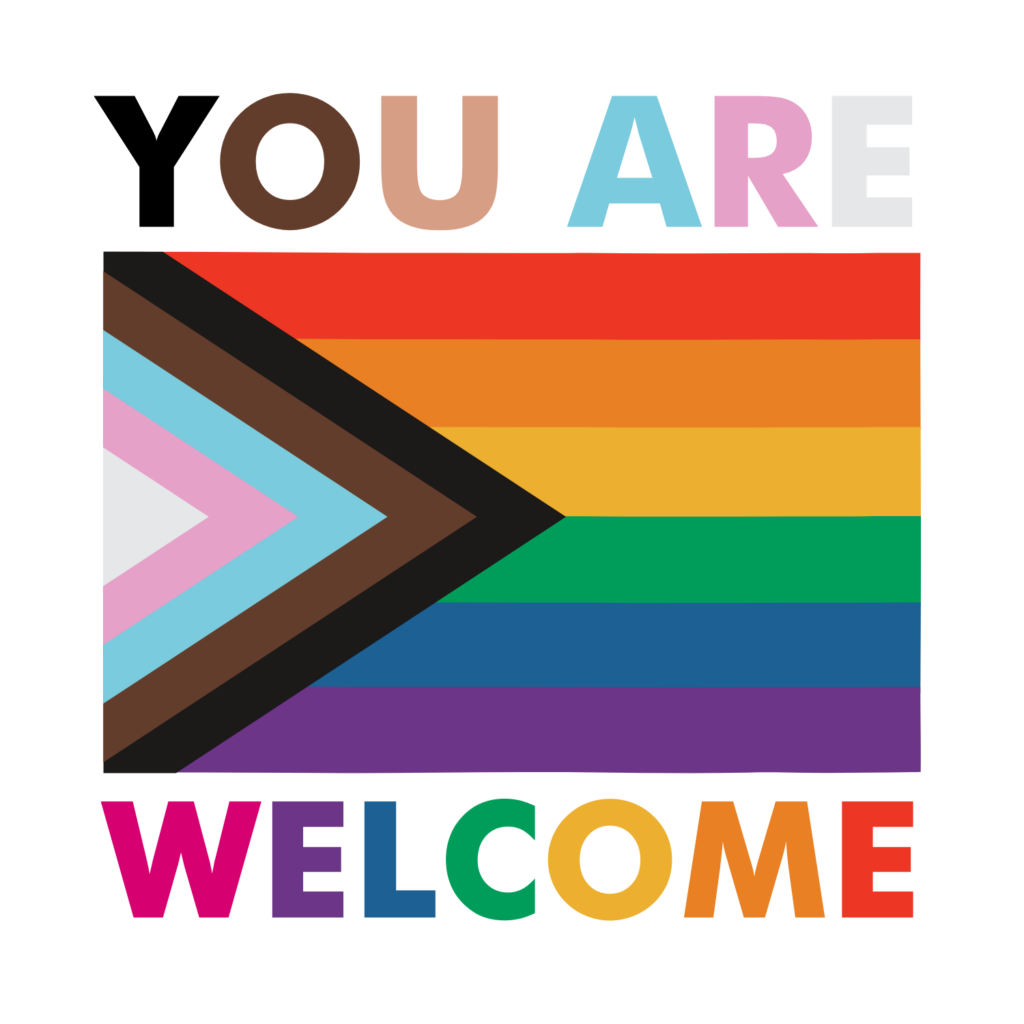Our organization has a mission of working together to meet basic human needs for the greater Des Moines community – and that includes everyone. We lift up and support our LGBTQ+ community and recognize the unique hardships faced by the queer community in meeting their basic human needs.
In June, we at DMARC honor the resilience of our LGBTQ+ neighbors, but now, in particular, is a moment where we as an organization find it important to reaffirm our commitment to welcoming all who are seeking assistance.
When you visit our on-site food pantry at DMARC, we continue to work towards ensuring that every day, you will be met without any judgment.
So many of our neighbors are a part of a community that is being targeted in this state. This year alone, over 800 anti-LGBTQ+ bills have been introduced across the country. June remains a month of celebration of dignity in identity and a time for thoughtful reflection on the progress we have made. However, as Pride celebrations come to a close, we feel compelled to reaffirm to our LGBTQ+ neighbors that inside these four walls
we see you and welcome you.

DMARC is proud to join over 1,000 businesses in our state to take One Iowa’s pledge to reject hate and create a welcoming space for LGBTQ+ Iowans.
We recognize the harm that some religious communities and institutions have inflicted, and, unfortunately, some will continue to inflict, on the LGBTQ+ community. We also recognize and apologize for the shortcomings of our organization over the decades in affirming and celebrating the queer community.
But this commitment is core to our mission of helping our neighbors meet their basic needs. Our LGBTQ+ neighbors are increasingly more at risk of facing food insecurity to no fault of their own.
Several Studies have shown the adverse effects of food insecurity targeting the LGBTQ+ Community. 27% of LGBTQ+ adults experience food insecurity, compared to 17% of non-LGBTQ+ adults.3
A 2020 public health study from BMC Public Health found that 79% of transgender and gender non-conforming survey respondents experienced food insecurity, but only 22% utilized local food assistance resources like food pantries.1 Many survey respondents reported feeling unwelcome at food pantries because of their gender identity, particularly at food pantries operated by faith-based organizations.1
These adverse effects are just as prevalent and getting worse for our youth. LGBTQ+ youth are vulnerable to several risk factors that can impact their overall health and well-being.
- According to the Trevor Project, 40% of LGBTQ+ young people (ages 13-24) reported a history of food insecurity, houselessness, or unmet basic needs2
- Transgender and Nonbinary young people had a 77% greater odds of experiencing food insecurity2
- Food insecurity, homelessness, and unmet basic needs were all independently associated with increased likelihood of anxiety, depression, suicidal ideation, and suicide attempts.2
We will continue to challenge our staff, board, and partners in our shared commitment to equity and inclusion. It’s imperative that we do not give up on our commitment to difference. There is room for all of us to grow in this community, regardless of faith, race or ethnicity, sexual orientation, or gender identities. It is only when we blend our voices that we are truly strong.
Our mission at DMARC is to work together to meet basic human needs for the greater Des Moines community – and that includes everyone. We strive to support through our Food Pantry Network and welcome all those who need assistance, no matter their circumstances. We make every effort to treat each visitor to a DMARC-run food pantry with dignity and respect.
DMARC is an equal opportunity provider and does not discriminate on the basis of family size or structure, religious beliefs, cultural background, national origin, race, gender identity, sexual orientation, age, or disability.
1Russomanno, Jennifer, and Jennifer M. Jabson Tree. “Food Insecurity and Food Pantry Use among Transgender and Gender Non-Conforming People in the Southeast United States – BMC Public Health.” BioMed Central, BioMed Central, 29 Apr. 2020,



